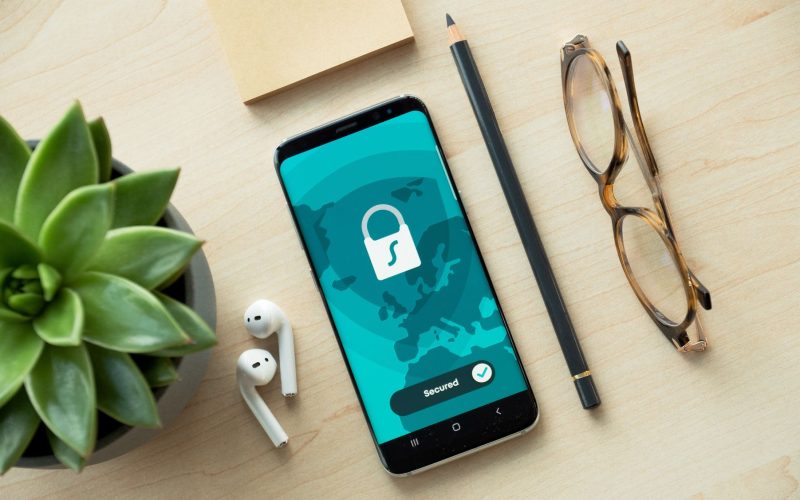
Essential Tips for Staying Safe Online
We all know that the internet can be a dangerous place. With hackers, scammers, and other malicious actors lurking around every corner, it is essential to protect yourself online. But how? Here are five easy tips to keep your data and identity safe while browsing the web.
1. Use Strong Passwords
Using a single password across multiple sites may be tempting, but this is not a safe practice. If someone were to gain access to one of your accounts using this information, they could easily gain access to all your other accounts as well. To stay safe online, create a unique password for each website you use, and make sure that you use strong passwords with at least 8 characters that contain numbers, letters (both upper- and lowercase), and special characters like ‘!’ or ‘?.’
Keeping yourself safe online is very important. One of the most effective methods of protecting your personal information and data is to employ strong passwords. Strong passwords contain upper and lowercase letters, numbers, and special characters, making them difficult to guess while simultaneously deterring automated attacks by malicious programs designed to decrypt passwords quickly. When creating a password, it is important to make sure that it is at least 8 characters in length and avoid personal information such as dates or names of family members. The more randomness there is in each password, the harder it is for a hacker to crack. Furthermore, taking advantage of two-factor authentication (2FA) systems whenever possible is another great way to further secure your accounts, as authentication codes are sent via text message every time you sign in. Ultimately, utilizing powerful passwords helps keep yourself safe online.
2. Keep Your Software Updated
Hackers often exploit security vulnerabilities in outdated software versions, so it is important to ensure that you have the latest version of any applications you use on your computer or mobile device. Most modern software programs will automatically update themselves when an update is available, but it never hurts to check manually every once in a while, just in case!
Keeping your software up-to-date is one of the most important steps for staying safe online. Knowing which updates are available and when to install them can help protect yourself and your data from security threats. Updating your devices with the latest software releases, such as operating systems and browsers, helps close vulnerabilities that hackers use to gain access. It also ensures you have access to all the benefits a new release offers, like better performance or improved functionality. Keeping devices updated not only ensures that they remain secure but also delivers a better user experience. Protecting yourself online has never been simpler: just stay up-to-date with your software!
3. Use Two-Factor Authentication
This type of authentication adds an extra layer of security by requiring a second form of verification beyond just your username and password. For example, if you have two-factor authentication enabled on your email account, then the system requires both your username/password combination plus another form of authentication. This could be an SMS code sent to your phone or a fingerprint scan from a biometric reader before allowing access to the account.
Two-factor authentication (2FA) is a powerful tool for protecting yourself online. It adds a layer of security by requiring users to provide two pieces of information before accessing an account, such as a unique code sent to their mobile device. This makes it much more difficult for criminals to hack into accounts and steal confidential data, as they would need the secondary authentication piece and your login credentials. With 2FA, you can rest assured that only those with the right qualifications will be able to access your accounts and sensitive personal information. Investing in 2FA is essential to protect yourself in this digital age.
4. Be Cautious With Links & Attachments
Another common way hackers gain access to your data is through malicious links or attachments sent via email or other messaging services. Before clicking on any link or downloading any attachment from someone you don’t know, double-check with the sender that they actually sent it—it could be a phishing scam! When in doubt, don’t click!
Keeping our data and information secure is essential in today’s digital world. One of the most effective ways we can do this is to stay cautious with links and attachments we encounter online. Even if a link or attachment comes from an email or website that looks trustworthy, it’s important to check carefully before clicking on them. Malicious links and attachments, such as phishing websites or riddled with viruses, can seriously compromise our security. Therefore, using a reliable anti-virus program or web advisor to verify the safety of any online content before opening it is worth taking the time to do. Being aware of the potential dangers and taking simple steps like being cautious with links and attachments you receive will greatly reduce your chances of falling victim to any malicious activities.
5. Use Antivirus Software
Finally, one of the most important steps to stay safe online is installing antivirus software on your computer or mobile device and keeping it up-to-date at all times. Antivirus programs scan incoming files and detect any malicious code before it can do damage—so make sure yours is always running!
Antivirus software is essential for keeping security while browsing online. Installing a reputable brand can help sift out malicious hardware and software, detect potential threats, and alert the user before they are exposed. Antivirus also aids in protecting personal data by thwarting identity thieves who may be attempting to access or monitor your data. Become cyber-savvy by proactively seeking out antivirus services that provide you with higher levels of protection from malware and other online threats. By doing so, you can ensure your safety and peace of mind when spending time online!
Keeping yourself safe online is essential these days. Still, fortunately, there are some simple steps you can take to help protect yourself against cyber criminals and other malicious actors on the internet. By following these five tips—using strong passwords; keeping your software updated; using two-factor authentication; being cautious with links and attachments; and using antivirus software—you can ensure that your personal data stays secure when browsing the web!
…

